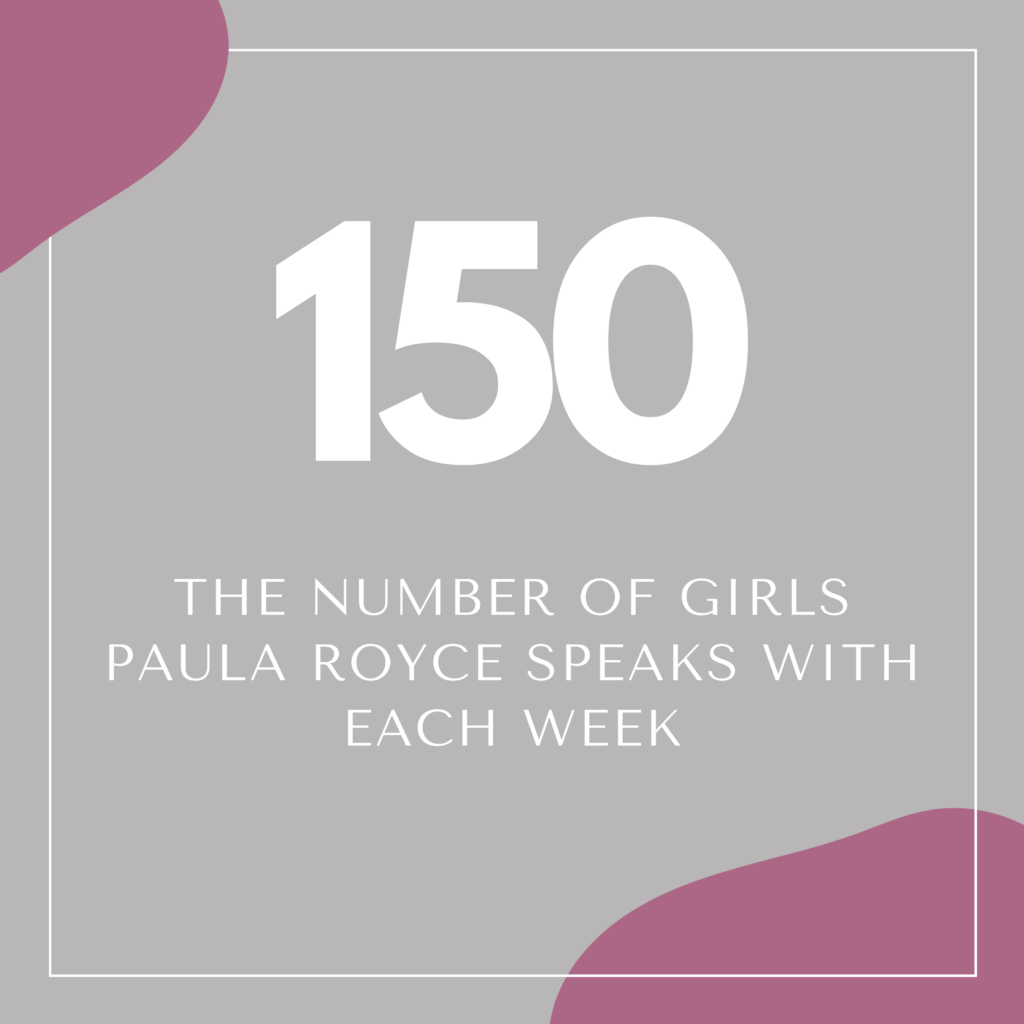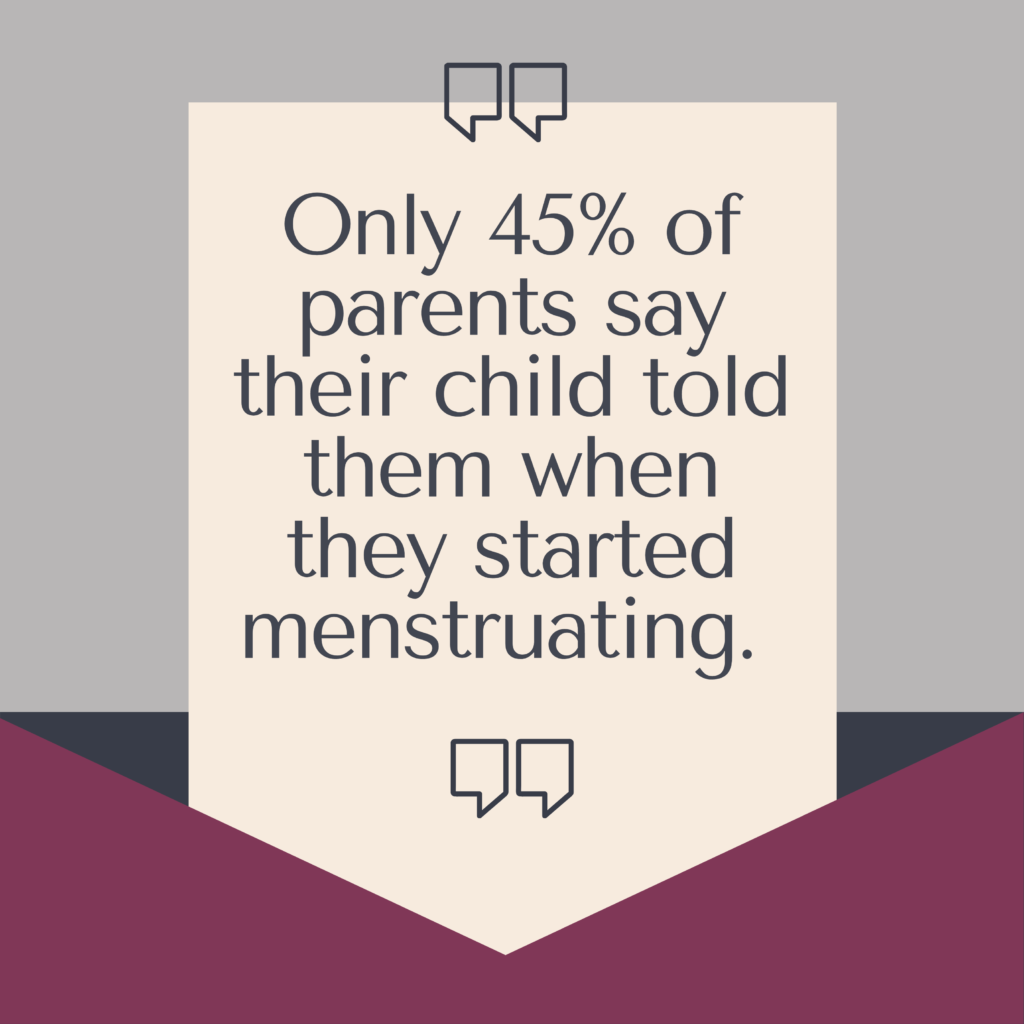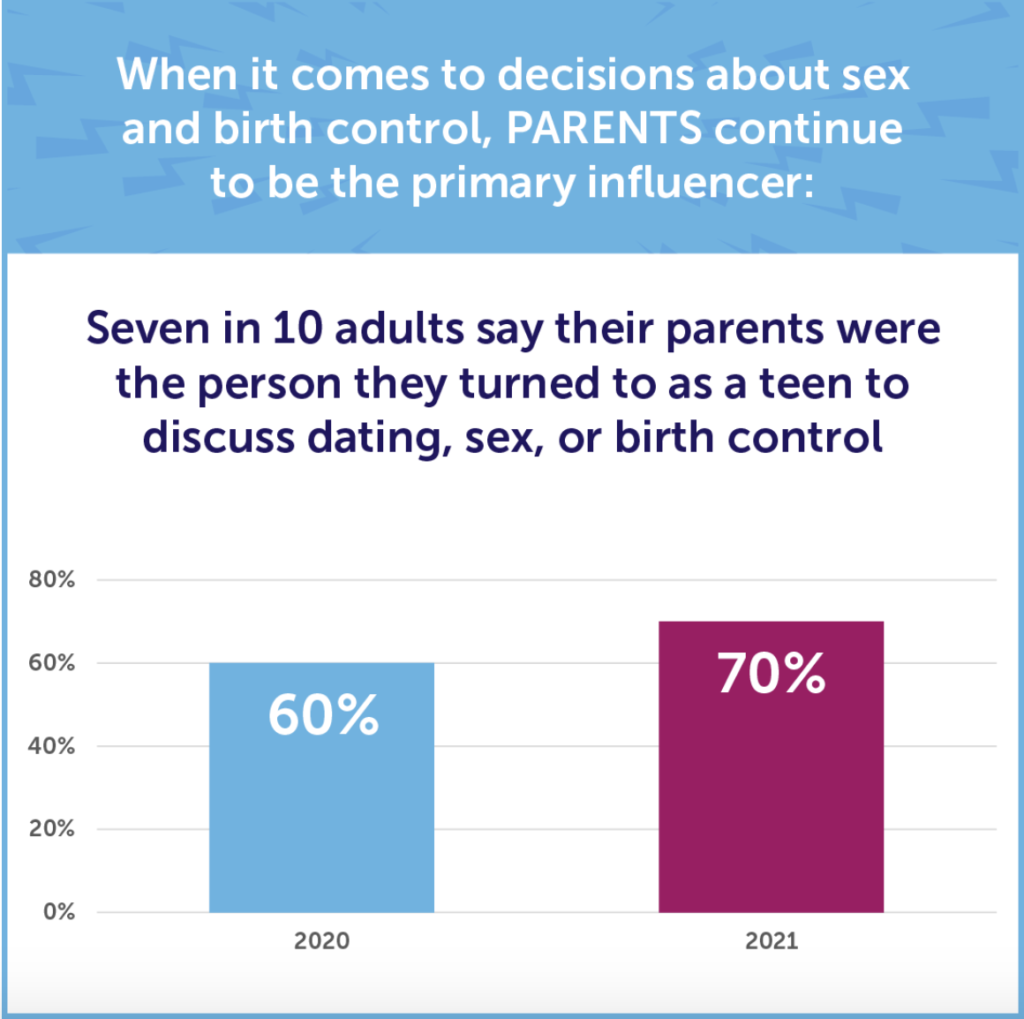Talking Is Girl Power
May is #TalkingIsPower month, a national effort to inspire conversations between teens and the trusted adults in their lives regarding sexual and reproductive health.
These conversations are vital, and often wanted, but it’s difficult to know where to start. Subjects like sexuality, sexual health, relationships, and mental health might be difficult or even taboo to discuss with family, especially when girls are considered “too young.”
Even menstruation is sometimes avoided; only 45% of parents say their child told them when they had their first period, and some reported that their child actually tried to hide this information completely. Open discussions about menstruation could have helped more girls feel comfortable bringing up this information with their parents, but without family involved in these discussions, girls are led to believe that these topics are meant to be private.
Internalizing relevant thoughts is exactly what GirlPower works to avoid. Through Paula Royce’s work as an advocate, she encourages girls to start these conversations, and be advocates for themselves.



Paula Royce, the founder and director of Girl Power, speaks with nearly 150 girls every week. They discuss whatever is on their minds, and no topic is off limits.
In one particular session, the conversation touched on as many topics as body hair, social and emotional changes, what was appropriate to say about another woman’s body, and even what it meant to be Queer. The girls comfortably navigate the conversations, often bringing in examples from their own life experiences.
Royce’s mantra for encouraging these potentially tough conversations is “I will believe you.” This statement is not only reassuring, but it is also necessary.
Penalties exist for failures to report child abuse or neglect—laws that are in place because there are people who do not believe what girls tell them. Royce is an advocate for girls who may otherwise never have their concerns or past abuses reported to the police.
Girl Power is an opportunity for young women to speak up for themselves, be heard, and be celebrated.
In various schools around the Tulsa area, Girl Power uses a private classroom for girls to learn about the changes associated with female adolescence, relationships, boundaries, and more, all alongside Paula Royce, a trusted adult. They can bring anything to the table that they’d like to discuss.
These discussions often center around what is currently happening in their lives, but some girls also open up about past adverse events they have experienced. Even though the girls may come from separate friend groups, differences are soon pushed aside as everyone is expected to listen and support each other in this safe space. Girl Power creates a community.
Beginning these conversations in a structured, supportive environment encourages girls to continue talking about these same topics at home. This is a key element. While the girls demonstrate their trust for Royce, many still want to engage in these conversations with their parents.
A recent survey from Power to Decide shows that 7 out of 10 people polled turned to their parents to discuss subjects like sex, dating, and birth control when they were a teen.
This proves true in Royce’s classes as well. At a recent Girl Power session, when Paula asked the girls to identify a trusted adult in their life that they turn to for these important conversations, more than three quarters of the girls named a parental figure like a mother, grandmother, or aunt.
One key area where these conversations at home may have a significant impact is when they occur between fathers and daughters. Girls are often expected to speak with their mothers, if anyone, about personal matters. In the Girl Power session mentioned above, all the girls named female parental figures as their trusted adults. So where does that leave girls who need to, or want to, talk with their fathers about these matters?
80% of women wish their fathers talked more with them about at least one specific area of sexuality.
The number of households headed by a single father has increased dramatically since the 1960s, now comprising 8% of single parent households; in Oklahoma, this corresponds to an estimated 74,000 households headed by a single father.
However, out of approximately 200 young women, less than 10% said their fathers prepared them “well” for dating and sexuality. The majority of these women, more than 80%, stated at least one specific area they wished their fathers had discussed with them. These areas included how to deal with pressure to have sex, and specific information about sexual risk.
This study again underscores the importance of continuing these discussions that begin at Girl Power at home. For single-father households, or any home in which the father is the trusted adult, these conversations are especially vital.
Girl Power gives girls the extra initiative to begin these conversations when they have not yet occurred, especially with parents who may be less inclined to hold these discussions. Through modeling what appropriate listening and support looks like in Girl Power meetings, girls are equipped with the tools to operate in spaces where they may not be as represented.
Programs like Girl Power are crucial to enhance positive youth development, build skills, enhance peer bonding, strengthen familial bonds, and empower youth. Rather than focus on “fixing” any perceived negative traits about girls, these programs take a positive outlook on adolescent development. When girls have role models outside of traditional establishments like schools and families, they are provided with more resources for imagining the possibilities their futures could hold.
Taking is power, but it’s only the first step. Listening to and believing girls must be prioritized. More schools should consider implementing similar programs, holding spaces for girls to come together and discuss not only the problems they are facing, but the successes they are having.
It is just as important for us to remedy the issues girls are facing as it is for us to celebrate the triumphs girls continue to achieve every day.
This analysis was created in partnership with the Family Center for Juvenile Justice. To learn more about their work, visit tulsacounty.org.



